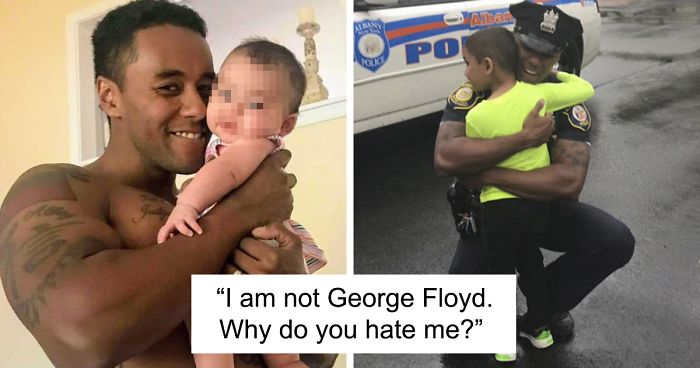
Black Police Officer Asks People To Stop Hating On Him In A Heartbreaking Post
Interview With AuthorAfter the death of George Floyd, the US police force faced a massive backlash over brutality. Some protestors believe that all police officers are untrustworthy. However, there are plenty of good, kind-hearted police officers out there and we shouldn’t assume that someone is bad just because they wear a certain uniform. That’s the message that black officer Sadaka Kedar Kitonyi was trying to send with his touching Facebook post.
Sadaka asked the internet why it is that some people hate him and want to hurt him when he helps out those in need, stops criminals who hurt innocent people and saves lives. However, his post was also addressed to those who would automatically judge him for being black. Sadaka pointed out that he’s educated, intelligent, and volunteers; listening to rap music or speaking in slang don’t diminish his positive qualities.
Sadaka told Bored Panda that he feels honored and blessed that his “little old rant” got so much attention. “Now is a unique time where we can finally all speak up and out about all injustices without fear of persecution or being a pariah.” Scroll down to read Sadaka’s story in his own words and for our in-depth interview with him.
Police officer Sadaka Kedar Kitonyi shared a heartwarming post on Facebook
Image credits: Sadaka Kedar
Here are some photos of the officer from his day to day life. He’s an important figure in his community
Image credits: Sadaka Kedar
Sadaka told Bored Panda that he feels honored and blessed that his “little old rant” got so much attention. “Now is a unique time where we can finally all speak up and out about all injustices without fear of persecution or being a pariah.”
“Not in a million years did I think my posts would get this much attention lol I’m just one small city cop who is just physically, emotionally and mentally drained from all the hate. It’s frustrating being stuck right smack in the middle of both sides. I’m only for what’s right. I think there is an enormous gap in trust from all sides,” Sadaka shared his thought with Bored Panda.
Image credits: Sadaka Kedar
“It’s even more upsetting that I am automatically hated for the actions of a very small few (check the statistics) when I am someone who has been out developing relationships with the community—on and off duty—long before these issues came to light. It’s unfair and hurtful, and I feel betrayed. But it will never stop me from being out with my boots on the ground serving my community,” the police officer said, musing that the popularity of his post may have something to do with him speaking from the heart and being a “voice for the peaceful middle.”
Image credits: Sadaka Kedar
Sadaka told us that his relationship with his 400 or so colleagues at the police department in Albany is just as strong as the relationships he has built with his community. He added that he knows nearly every single member of the police force personally.
“It’s just who I am, I get along with everyone. I’d say it goes back to being the voice of reason for the silent majority—a lot of my colleagues are glad I am speaking up for them because most (especially my white partners) are in agreement with my perspective and want to say what I am saying but are afraid to say the wrong thing.”
Image credits: Sadaka Kedar
He continued: “Even those with indifferent views still are very supportive of my message. For some, the fear of being yourself has been a real thing in police culture for a long time. Like in any career field, it’s concerning having ‘skeletons in your closet’ or a past history you may not be so proud of coming to the attention of your peers. I think most are just embarrassed or ashamed and choose to keep quiet.”
Image credits: Sadaka Kedar
According to Sadaka, he never really thought about becoming a police officer when he was growing up and wasn’t interested in it. At first. “Actually, I have had negative interactions with police in the past years before I got on the job, and in my teenage years, I even spent a night in jail. You may kind of say I had a ‘dislike’ for the police growing up…”
He continued: “So most of you are probably dumbfounded asking yourself how I ended up with a badge and a gun—and then worked up a huge heart and a kind and caring soul. Let me explain: life is nothing but making choices—wrong choices are called mistakes. I chose to not let my wrong choices define me but rather my character is shaped by the lessons learned from mistakes. Although I acted up during my younger years, I was always raised to respect and protect our neighborhood. Years later in my life I realized that becoming a police officer could give me a platform to give back and be a protector to the city that raised me. Once I got my foot in the door and established a reputation, I found a unique way of adding my own flavor of policing. Once I embraced compassion and empathy, I became what a cop should really be.”
Image credits: Sadaka Kedar
There is no easy way to solve the issues of police brutality. However, there are some possibilities that might just work. Especially if they’re taken together.
For instance, the BBC writes that one option would be to rewrite the police’s ‘use of force’ policies by banning certain actions or requiring colleagues to intervene if they see an officer going beyond what’s permitted.
Another potential solution would be to have more external oversight into how the police operate. One example of this would be to wear body cameras that film incidents and would allow juries to evaluate what happened with as little bias as possible.
While another way to reduce the divide between officers and the people they serve and protect could be to demilitarize them and to give them training aimed less at escalating conflicts and more at neutralizing them.
Here’s how some people reacted to the officer’s post
Him and countless other cops put their lives on the line every single day and it's right that we're reminded of this, particularly in these times. That doesn't mean that the protestors are wrong though. It means that policing has to change.
This. There are good cops out there, but the system is broken and the "bad apples" are in charge. As an Australian in America, I'm horrified both at what the cops are expected to do, and in the methods many of them choose to use, but most of all, in how they're supported by all levels of government in getting away with what they do.
Load More Replies...He sounds like a great guy and he's setting a great example. If only there were more people like him.
There are. So so many. If you let a bad few influence your opinion of a whole group you may as well assume, well, the same tarring of the same brush many groups have.
Load More Replies...Thank you for your service. There are still many of us who support the police, and realize that the dishonorable actions of a few will never eradicate the good intentions of the majority.
Good intentions never brought a murdered person back to life.
Load More Replies...Doesn't matter how good you are to the people in your life. Or one on one in a positive situation. If you see your coworkers and peers being abusive and say nothing, you're accomplice to their behavior. If you spend your days looking for problems, you're part of the problem. If you or your coworkers are in the habit of escalating presence, you're escalating tension. The reform that's needed isn't about individuals, it's about the systems those individuals are complacent in.
If you're a "good cop" and you're not turning in the bad cops you most assuredly work with, you're not a good cop. Period. I hope this guy does the right thing, and I don't think all cops are horrible people...But I do think the system they work in is corrupt to the core in most of the US.
If you don't loot and you're not turning in the looters you're not a good person. That argument (does not) work both ways.
Load More Replies...I heard someone wanted to run a police officer over and did, apparently drove around an entire block just to get him. I am horrified people treat the police like this, all over a few bad apples. Cops are on our side.
The phrase is "a few bad apples spoil the WHOLE bunch" and we literally watched numerous times where there were bad police during the protests and none of their fellow "good" officers did anything to stop them or uphold the law. There is far more corruption inside policing than people want to believe. Example: Old man is pushed down by an officer unprovoked and his head split open on the concrete. All officers ignored this and even worse when the officer was later suspended FIFTY SEVEN officers stood by him and protested his suspension!
Load More Replies...I work in education. Some professions like ours, get villainized and become a scapegoat of blame for a myriad of problems. We walk a fine line because our jobs are controlled by the government but serve the public. Do not take this personally. Go to work, do your job, do it well. We are both in our jobs to make a difference to the people we serve, and in the end, they are what matters.
I loved him, his family, especially his [I am supposing] mother and father. And, not to put too fine a point on it, I love that he is so empathetic and sympathetic. He is an American and I would be proud to have him in my family. He is the epitome of what a police officer is. You be safe and try not to fall all over the women who are going to be throwing themselves at your feet once they see your picture, you are a fine looking young man.
I think sensible people know there are good cops and appreciate all that they do. The good cops are NOT the problem.
But they do nothing to stop the bad cops. That’s the real problem.
Load More Replies...Good! You epitomize what is best in our police departments. Help address inequities in policing and make sure the bad cops don’t take you all out.
I’m a physician. I can say for a fact that yes, there are some bad people that become doctors. Some that financially or sexually exploit their patients. We see them in the news, and I cheer their convictions when they get caught the same as everyone else. But I am so blessed, that when we see a news story like that, I don’t have to be afraid to go back to work the next day because crowds are outside my work chanting death to all doctors. Because most people know one bad apple does not mean all physicians are evil. Why do law enforcement professionals not get the same respect? Why do minorities also not get the same respect that when one black guy commits a crime, doesn’t mean ALL black people commit crimes? I’ll tell you why. Because if the media only ran stories featuring the millions of rational, normal people who understand that one bad apple does not make a trend, they wouldn’t have any business. So they publicize that which keeps our country divided and keeps hate alive.
Racism, like all other kinds of stereotypes and preconceived notions and prejudices, will fade like a soft haze when you opt to look at the world with your mind and eyes open for all the nuances and variations. There is only one race.
I would eat that man for breakfast, lunch, dinner AND DESSERT. Mmm mmm mmm... Daaamn
What almost nobody knows, due to the news that sells more the other side of the badge, is that the vast majority of cops are good people and not the - no more, no less - criminal ones. As easy as that, there will be dozens of reporters around at a single cop beating the s*it out of an innocent bystander, and none watching the ones helping people. Those bad apples are watched by the others as better not to mix with. Now thanks to the unfortunate case of George Floyd and that d******d of Derek Chauvin, something is changing and those bad apples are somewhat having more attention, have you noticed the practice of killing unarmed black people isn't ceased with George Floyd ? And thanks to the internet now news are spreading faster. That's why things are changing.
A lot of people seem to use the phrase 'bad apples' without recalling the entire saying: "ONE bad apple can spoil the bunch." Having worked in a produce department, I can say that this is LITERALLY true. The point is that, while the rest of the apples may have been fine at some time, the rotten one has quickly spread its slime to the rest. I'm by no means negating the obviously wonderful works this man and other cops have done for their respective communities. There's quite a lot, and that's not up for debate. But honestly, a lot of it comes across like an abusive husband making you dinner after he gives you a black eye. The system is not even corrupt, it is in fact working exactly as designed, that is to say, propping up white supremacy and the 1%. Laws of all kinds in America are literally designed (and more importantly selectively enforced) against BIPOC and poor/ignorant folks. If a corporate CEO steals millions of dollars through wage withholding and tax evasion, he's (cont)
he's a smart businessman, and MIGHT get a slap on the wrist (along with the adoration of millions). If a poor teenager steals a bag of candy from a corner store, he's a thug who gets beaten and arrested (or possibly shot, if he's black). The system is f****d from the ground up, and THAT'S what so many of us are talking about when we call for 'defunding the police:' not to leave communities with zero resources for dealing with (and more importantly PREVENTING) crime, but to stop forcing undertrained and over-militarized police departments from doing ALL of the work in a community themselves. It's unfair in the extreme to the cops as well as the citizens. This cop, or any other, can do every individual good deed possible, and it means very little in this face of this well-oiled machine of oppression. The cops kneeling in solidarity with protesters, saying Black Lives Matter, and then hours later shooting the same unarmed, nonviolent protesters at point blank range with rubber bullets
Load More Replies...The sad reality is there is a source to this training of Police officers. There are academies where they learn the methods and it's mainly rooted in here. Palestinians suffer this everyday. I hope the world changes and good people take over every where. Please don't watch if you are sensitive. https://www.facebook.com/2464102393614439/posts/3291036574254346/?vh=e&d=n
You, sir, are a mighty good man. But instead of complaining about people refusing to accept the abuse and murders in their communities at the hands of those who are supposed to protect them, why aren’t you going after the power-crazed haters, your ‘brothers in blue’? Don’t look away from what they are doing to individuals, to neighborhoods, to the integrity of your service. If you refuse to stop them, you are in essence committing the abuse alongside them. Stand against them, not with them. Please.
Thank you! You are a wonderful person. It's sad that he has to receive hatred from both sides, for being an officer and being a black man. Can't we just all see people as human lives and stop all this useless hatred. Life would be so much easier. We still need officers they are not all bar people and black lives surly do matter.
I literally can't believe I'm reading this. This is exactly the kind of deflection and distraction that is designed to discredit and dissemble about the real issues of Black Lives Matter. And from a person of color? Look up a few articles from current and ex-cops that tell the truth about what cops are really like and why. Whatever kind of a saint he wants to tell us he is, he's ignoring two major problems. 1/Around 1,000 people of colour die every year in police custody in the USA. 2/ If he's not outing bad cops and standing up for what's right and saying the truth about BLM, then he's a total hypocrite. Please don't fall for this heartwarming nonsense. The truth is out there. Go find it.
Most of what you’re saying is true, that doesn’t mean that this mans story is a lie though. There is clearly systemic racism in the police service and in many other places too. The main issue for me is that there appears to be very limited accountability or an appetite to pursue wrongdoers. Again, that doesn’t mean that this man (and plenty like him) is not a good cop. We should be challenging this further up the line, not the front line officers. There needs to be reform, accountability and proper punishment.
Load More Replies...I have just one little question; If the majority of the police officers are fine, outstanding and law abiding people how come that the reports of police brutality, excessive violence, harassment and intimidation keep coming in on a daily basis for decades now? And how come the police force used rubber bullets and teargas to violently disperse a crowd that's peacefully protesting police violence? I don't doubt this officer for one moment, but sadly he's not the norm.
Does he turn in the bad cops he runs into? Does he speak up when his colleagues back at the station say racists things? That's what I want to know more than the good deeds he does in the community. THAT IS HIS JOB. No? Then he's not breaking the cycle of bad cops that ruin the barrel.
He does seem like a nice guy, BUT, when people put on that uniform and wear that badge and gun...they change. I've seen it many times. They change, and not for the better. Yes, I guess there are some, damn few, good cops. I never meet them though. I question why does he write about poor him? This isn't about him, this is about all the black people the police kill, all the time, for decades. No one made him join the police.
Good cops are becoming increasingly less common. It's a system and set of rules that allow otherwise constrained people to act with impunity. Its human nature. Fix the system and we wont have to even have a conversation about whether there are good or bad because the bad ones will be fired and thrown in jail. Start with federally reducing the use of force, get rid of qualified immunity, put an emphasis on deescalation and community building, divest from military grade equipment and spend that money on social programs, and put an end to civil asset forfeiture.
It seems to me that you are a good man. Remember, being hated by evil people is a very big compliment. When you realize that in your heart, you will feel uplifted by their hate. God bless you.
Those fighting against a corrupt system are not evil. Take a look in the mirror, honey.
Load More Replies...what in you looked at what you just wrote and decided, "yup, that looks good!"? do you think before you post, or do you just... *tiktiktiktiktik done*
Load More Replies...Sorry to burst your bubble sweetheart but people are gonna hate you no matter what job you do, what color you are, what religion you follow and so on. Even I hate you and I've never met you Rider so it evens out nicely
Load More Replies...It's wrong to paint any whole group of people with the same brush.
Load More Replies...Just spitballing here, maybe this guy didn't post all of those photos this year
Load More Replies...Him and countless other cops put their lives on the line every single day and it's right that we're reminded of this, particularly in these times. That doesn't mean that the protestors are wrong though. It means that policing has to change.
This. There are good cops out there, but the system is broken and the "bad apples" are in charge. As an Australian in America, I'm horrified both at what the cops are expected to do, and in the methods many of them choose to use, but most of all, in how they're supported by all levels of government in getting away with what they do.
Load More Replies...He sounds like a great guy and he's setting a great example. If only there were more people like him.
There are. So so many. If you let a bad few influence your opinion of a whole group you may as well assume, well, the same tarring of the same brush many groups have.
Load More Replies...Thank you for your service. There are still many of us who support the police, and realize that the dishonorable actions of a few will never eradicate the good intentions of the majority.
Good intentions never brought a murdered person back to life.
Load More Replies...Doesn't matter how good you are to the people in your life. Or one on one in a positive situation. If you see your coworkers and peers being abusive and say nothing, you're accomplice to their behavior. If you spend your days looking for problems, you're part of the problem. If you or your coworkers are in the habit of escalating presence, you're escalating tension. The reform that's needed isn't about individuals, it's about the systems those individuals are complacent in.
If you're a "good cop" and you're not turning in the bad cops you most assuredly work with, you're not a good cop. Period. I hope this guy does the right thing, and I don't think all cops are horrible people...But I do think the system they work in is corrupt to the core in most of the US.
If you don't loot and you're not turning in the looters you're not a good person. That argument (does not) work both ways.
Load More Replies...I heard someone wanted to run a police officer over and did, apparently drove around an entire block just to get him. I am horrified people treat the police like this, all over a few bad apples. Cops are on our side.
The phrase is "a few bad apples spoil the WHOLE bunch" and we literally watched numerous times where there were bad police during the protests and none of their fellow "good" officers did anything to stop them or uphold the law. There is far more corruption inside policing than people want to believe. Example: Old man is pushed down by an officer unprovoked and his head split open on the concrete. All officers ignored this and even worse when the officer was later suspended FIFTY SEVEN officers stood by him and protested his suspension!
Load More Replies...I work in education. Some professions like ours, get villainized and become a scapegoat of blame for a myriad of problems. We walk a fine line because our jobs are controlled by the government but serve the public. Do not take this personally. Go to work, do your job, do it well. We are both in our jobs to make a difference to the people we serve, and in the end, they are what matters.
I loved him, his family, especially his [I am supposing] mother and father. And, not to put too fine a point on it, I love that he is so empathetic and sympathetic. He is an American and I would be proud to have him in my family. He is the epitome of what a police officer is. You be safe and try not to fall all over the women who are going to be throwing themselves at your feet once they see your picture, you are a fine looking young man.
I think sensible people know there are good cops and appreciate all that they do. The good cops are NOT the problem.
But they do nothing to stop the bad cops. That’s the real problem.
Load More Replies...Good! You epitomize what is best in our police departments. Help address inequities in policing and make sure the bad cops don’t take you all out.
I’m a physician. I can say for a fact that yes, there are some bad people that become doctors. Some that financially or sexually exploit their patients. We see them in the news, and I cheer their convictions when they get caught the same as everyone else. But I am so blessed, that when we see a news story like that, I don’t have to be afraid to go back to work the next day because crowds are outside my work chanting death to all doctors. Because most people know one bad apple does not mean all physicians are evil. Why do law enforcement professionals not get the same respect? Why do minorities also not get the same respect that when one black guy commits a crime, doesn’t mean ALL black people commit crimes? I’ll tell you why. Because if the media only ran stories featuring the millions of rational, normal people who understand that one bad apple does not make a trend, they wouldn’t have any business. So they publicize that which keeps our country divided and keeps hate alive.
Racism, like all other kinds of stereotypes and preconceived notions and prejudices, will fade like a soft haze when you opt to look at the world with your mind and eyes open for all the nuances and variations. There is only one race.
I would eat that man for breakfast, lunch, dinner AND DESSERT. Mmm mmm mmm... Daaamn
What almost nobody knows, due to the news that sells more the other side of the badge, is that the vast majority of cops are good people and not the - no more, no less - criminal ones. As easy as that, there will be dozens of reporters around at a single cop beating the s*it out of an innocent bystander, and none watching the ones helping people. Those bad apples are watched by the others as better not to mix with. Now thanks to the unfortunate case of George Floyd and that d******d of Derek Chauvin, something is changing and those bad apples are somewhat having more attention, have you noticed the practice of killing unarmed black people isn't ceased with George Floyd ? And thanks to the internet now news are spreading faster. That's why things are changing.
A lot of people seem to use the phrase 'bad apples' without recalling the entire saying: "ONE bad apple can spoil the bunch." Having worked in a produce department, I can say that this is LITERALLY true. The point is that, while the rest of the apples may have been fine at some time, the rotten one has quickly spread its slime to the rest. I'm by no means negating the obviously wonderful works this man and other cops have done for their respective communities. There's quite a lot, and that's not up for debate. But honestly, a lot of it comes across like an abusive husband making you dinner after he gives you a black eye. The system is not even corrupt, it is in fact working exactly as designed, that is to say, propping up white supremacy and the 1%. Laws of all kinds in America are literally designed (and more importantly selectively enforced) against BIPOC and poor/ignorant folks. If a corporate CEO steals millions of dollars through wage withholding and tax evasion, he's (cont)
he's a smart businessman, and MIGHT get a slap on the wrist (along with the adoration of millions). If a poor teenager steals a bag of candy from a corner store, he's a thug who gets beaten and arrested (or possibly shot, if he's black). The system is f****d from the ground up, and THAT'S what so many of us are talking about when we call for 'defunding the police:' not to leave communities with zero resources for dealing with (and more importantly PREVENTING) crime, but to stop forcing undertrained and over-militarized police departments from doing ALL of the work in a community themselves. It's unfair in the extreme to the cops as well as the citizens. This cop, or any other, can do every individual good deed possible, and it means very little in this face of this well-oiled machine of oppression. The cops kneeling in solidarity with protesters, saying Black Lives Matter, and then hours later shooting the same unarmed, nonviolent protesters at point blank range with rubber bullets
Load More Replies...The sad reality is there is a source to this training of Police officers. There are academies where they learn the methods and it's mainly rooted in here. Palestinians suffer this everyday. I hope the world changes and good people take over every where. Please don't watch if you are sensitive. https://www.facebook.com/2464102393614439/posts/3291036574254346/?vh=e&d=n
You, sir, are a mighty good man. But instead of complaining about people refusing to accept the abuse and murders in their communities at the hands of those who are supposed to protect them, why aren’t you going after the power-crazed haters, your ‘brothers in blue’? Don’t look away from what they are doing to individuals, to neighborhoods, to the integrity of your service. If you refuse to stop them, you are in essence committing the abuse alongside them. Stand against them, not with them. Please.
Thank you! You are a wonderful person. It's sad that he has to receive hatred from both sides, for being an officer and being a black man. Can't we just all see people as human lives and stop all this useless hatred. Life would be so much easier. We still need officers they are not all bar people and black lives surly do matter.
I literally can't believe I'm reading this. This is exactly the kind of deflection and distraction that is designed to discredit and dissemble about the real issues of Black Lives Matter. And from a person of color? Look up a few articles from current and ex-cops that tell the truth about what cops are really like and why. Whatever kind of a saint he wants to tell us he is, he's ignoring two major problems. 1/Around 1,000 people of colour die every year in police custody in the USA. 2/ If he's not outing bad cops and standing up for what's right and saying the truth about BLM, then he's a total hypocrite. Please don't fall for this heartwarming nonsense. The truth is out there. Go find it.
Most of what you’re saying is true, that doesn’t mean that this mans story is a lie though. There is clearly systemic racism in the police service and in many other places too. The main issue for me is that there appears to be very limited accountability or an appetite to pursue wrongdoers. Again, that doesn’t mean that this man (and plenty like him) is not a good cop. We should be challenging this further up the line, not the front line officers. There needs to be reform, accountability and proper punishment.
Load More Replies...I have just one little question; If the majority of the police officers are fine, outstanding and law abiding people how come that the reports of police brutality, excessive violence, harassment and intimidation keep coming in on a daily basis for decades now? And how come the police force used rubber bullets and teargas to violently disperse a crowd that's peacefully protesting police violence? I don't doubt this officer for one moment, but sadly he's not the norm.
Does he turn in the bad cops he runs into? Does he speak up when his colleagues back at the station say racists things? That's what I want to know more than the good deeds he does in the community. THAT IS HIS JOB. No? Then he's not breaking the cycle of bad cops that ruin the barrel.
He does seem like a nice guy, BUT, when people put on that uniform and wear that badge and gun...they change. I've seen it many times. They change, and not for the better. Yes, I guess there are some, damn few, good cops. I never meet them though. I question why does he write about poor him? This isn't about him, this is about all the black people the police kill, all the time, for decades. No one made him join the police.
Good cops are becoming increasingly less common. It's a system and set of rules that allow otherwise constrained people to act with impunity. Its human nature. Fix the system and we wont have to even have a conversation about whether there are good or bad because the bad ones will be fired and thrown in jail. Start with federally reducing the use of force, get rid of qualified immunity, put an emphasis on deescalation and community building, divest from military grade equipment and spend that money on social programs, and put an end to civil asset forfeiture.
It seems to me that you are a good man. Remember, being hated by evil people is a very big compliment. When you realize that in your heart, you will feel uplifted by their hate. God bless you.
Those fighting against a corrupt system are not evil. Take a look in the mirror, honey.
Load More Replies...what in you looked at what you just wrote and decided, "yup, that looks good!"? do you think before you post, or do you just... *tiktiktiktiktik done*
Load More Replies...Sorry to burst your bubble sweetheart but people are gonna hate you no matter what job you do, what color you are, what religion you follow and so on. Even I hate you and I've never met you Rider so it evens out nicely
Load More Replies...It's wrong to paint any whole group of people with the same brush.
Load More Replies...Just spitballing here, maybe this guy didn't post all of those photos this year
Load More Replies...
 Dark Mode
Dark Mode 

 No fees, cancel anytime
No fees, cancel anytime 






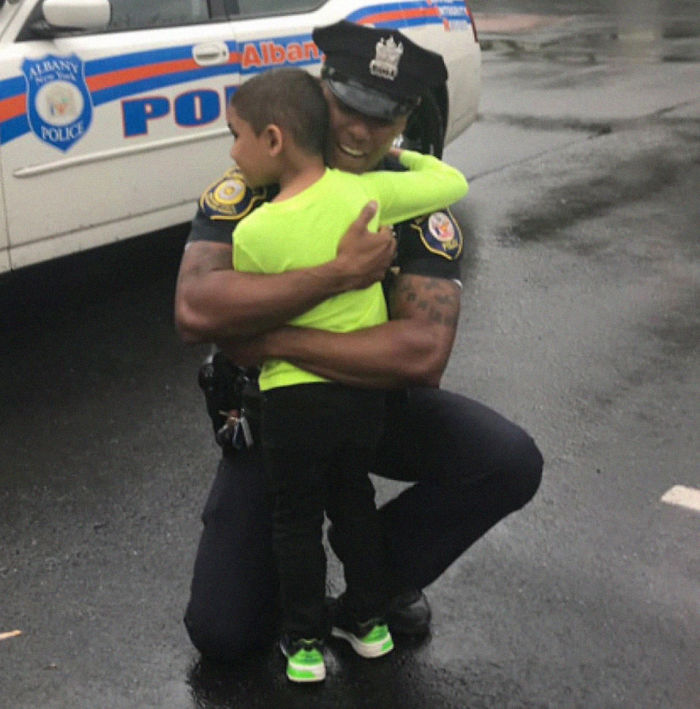
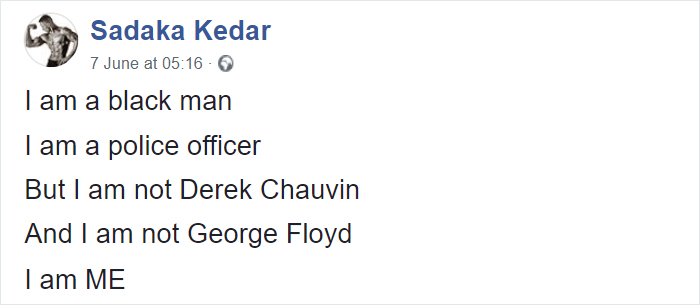
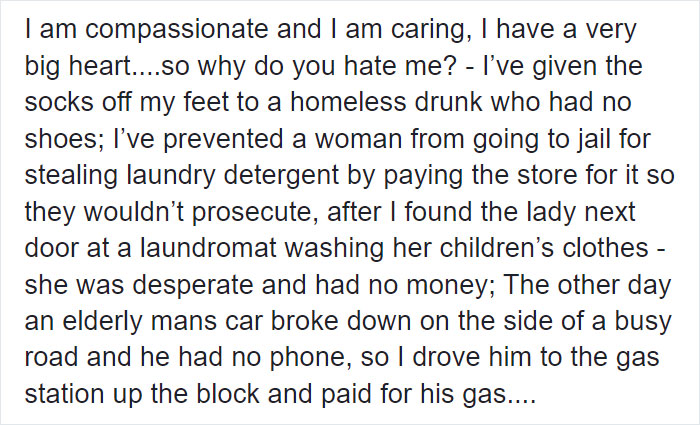
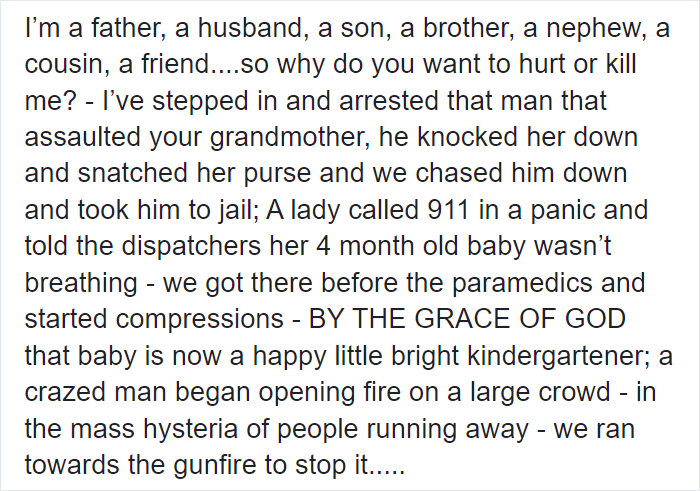
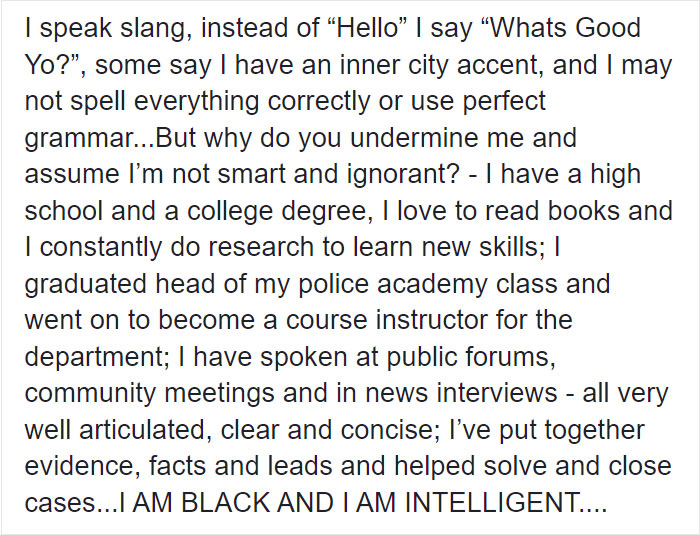
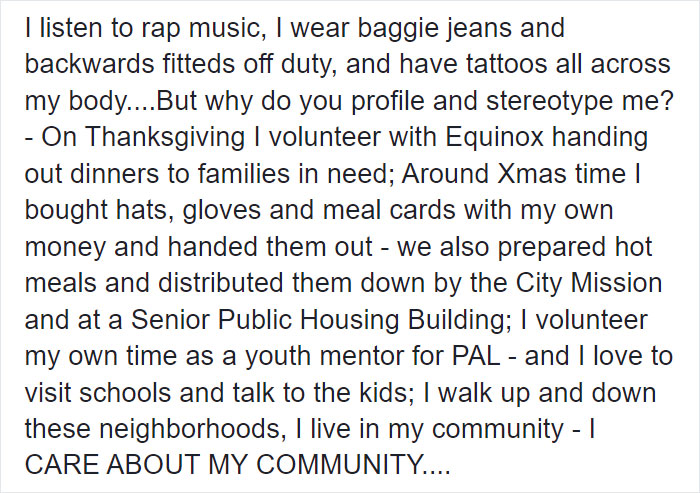
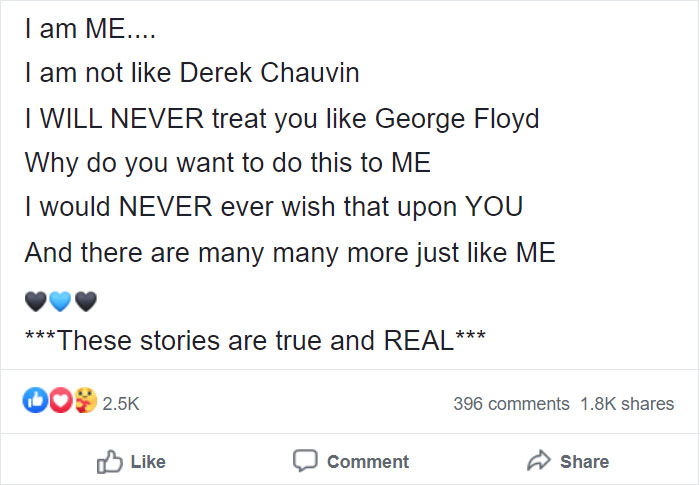
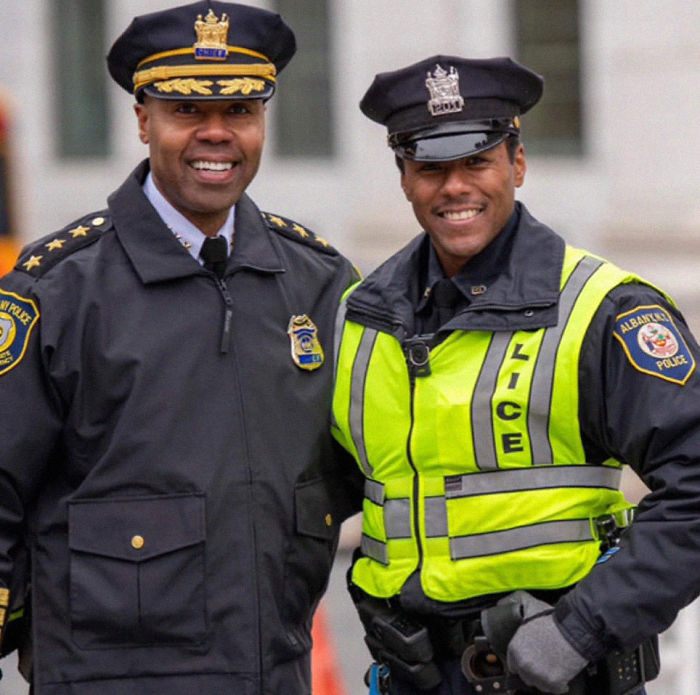
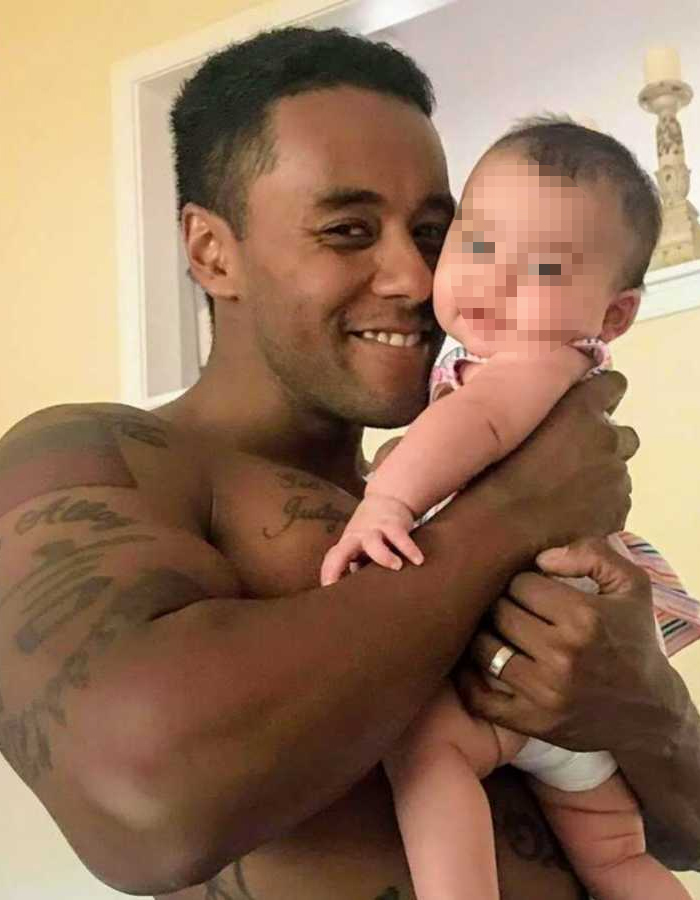
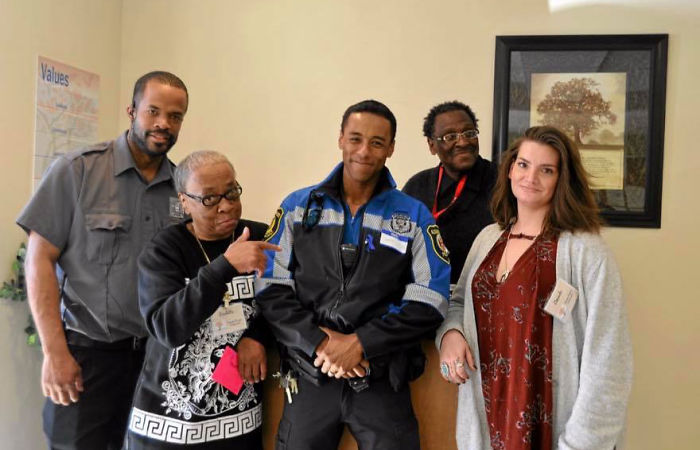
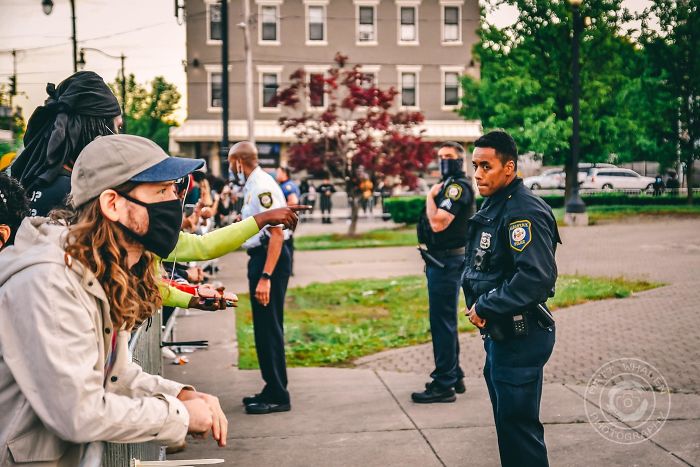
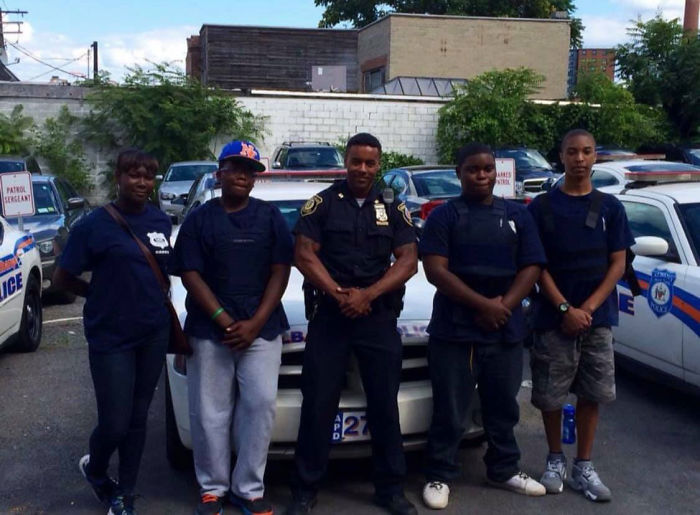
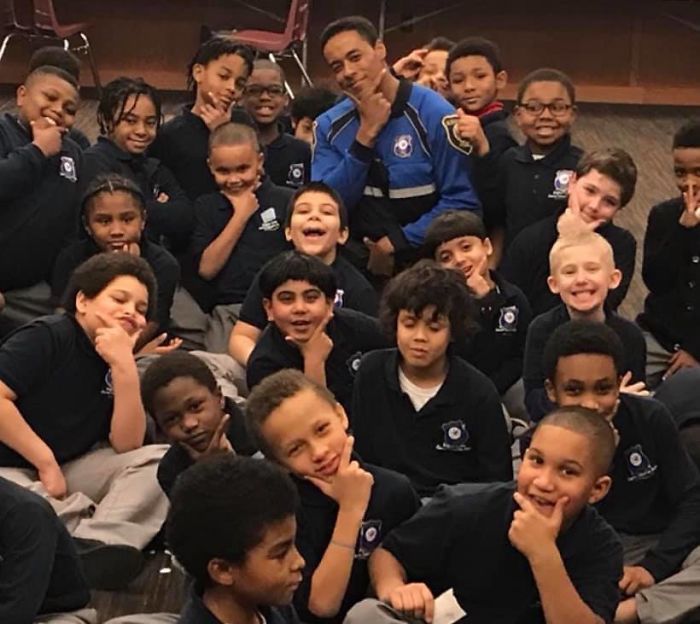

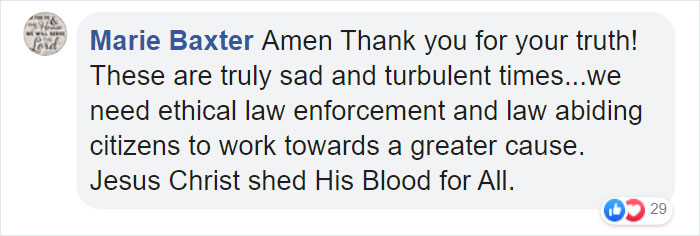


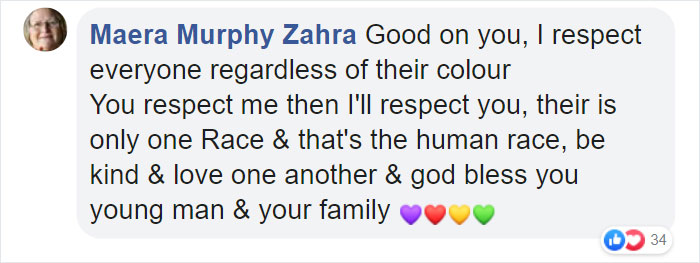

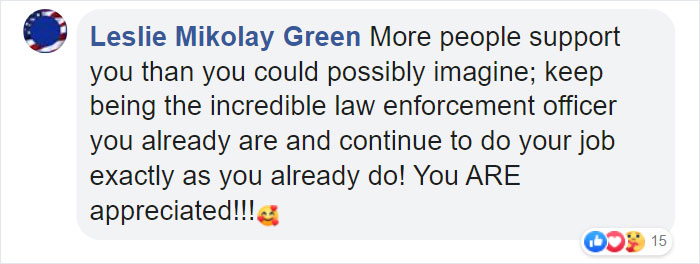
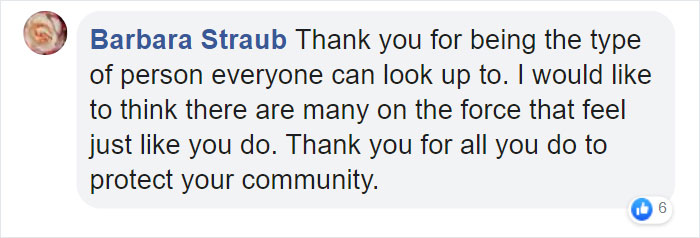










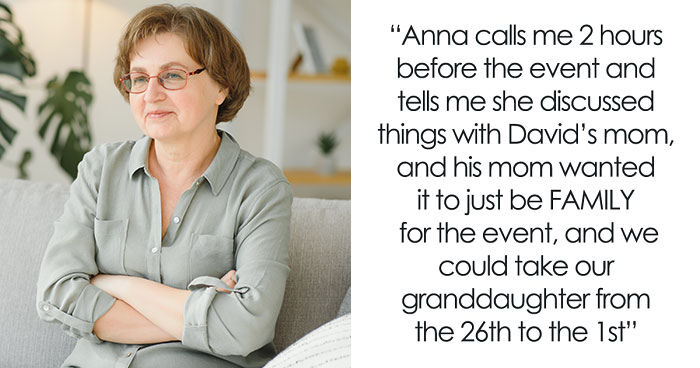
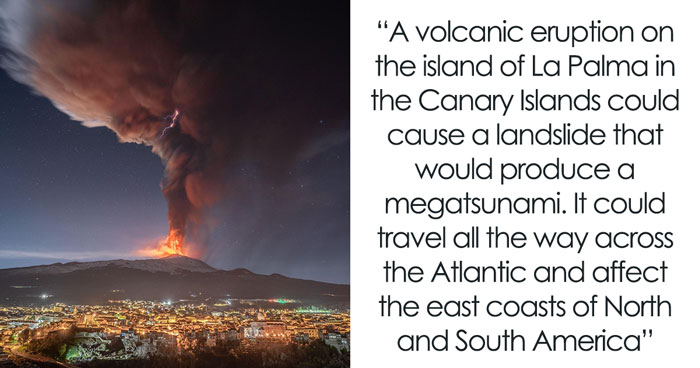

































280
78